Text

They also have an animal one that I linked a whole back on the same site !
22K notes
·
View notes
Text
While initially presenting itself as a light-hearted romp showcasing the absurdities of the super robot genre, Bravern fairly quickly shifts its focus away from parody (save for as a recurring bit) and instead seeks to answer the question of— why do these kinds of stories exist? Why, in such bleak times as this, with tangible, real-world problems to deal with, do we take the time to entertain the notion that such things as courage, love, and hope can magically save the day?
It’s because we need those things to stay alive. Too loosely paraphrase Terry Pratchett’s words in Hogfather, fantasy is what keeps us human. It’s fitting, then, that the antagonists of the series embody the desire for death. The only way to defeat the human tendency towards self-destruction is not only to have courage, but to believe that courage will be enough carry you through— and in doing so, giving it the power to do just that.
tl;dr

399 notes
·
View notes
Text
“bang brave bang bravern” more like “what if your mecha partner boyfriend soulmate loved you so much it saved his life and yours, forwards and backwards into infinity. what if he adopted and played up the persona of a superhero because acting as your knight was the only way he felt like he could stand by your side. what if he believed in you so hard that belief persisted even after he died. TWICE!!! and what if all that love taught you how to be brave enough to save everyone - but most importantly him - in return.”
277 notes
·
View notes
Text
Artbook collection Master-post

Dorohedoro MUD AND SLUDGE + Dorohedoro Sketch Book
'Day Dream Hour' Artbooks 1-5 by Ryōko Kui (Dungeon Meshi)
Delicious in Dungeon Adventurer's Bible world guide

Witch Hat Atelier Special Edition Volume 02 + 06 Artbooks
Yokohama Kaidashi Kikou - Book of Paintings + Postcard Book
"BLAME! and so on" Artbook

The Art of Ponyo
The Art of The Wind Rises
The Art of Kiki's Delivery Service

The Art of Nausicaä of the Valley of the Wind
Miyazaki Moebius exhibition catalog
The Art of Moebius

"Der Mond" Neon Genesis Evangelion Artbook
"EYES ONLY" SPY×FAMILY Official Fanbook
The Art of Fullmetal Alchemist 1 + 2

Elden Ring Art Book Volume 1 + 2
Dark Souls 1-3 Design Works
Bloodborne Official Artworks

SEKIRO - SHADOWS DIE TWICE Official Artworks
Grimoire Nier + NieR Art – Kazuma Koda Art Collection

The art of Alice Madness Returns
SCORN The art of the Game
The FLCL Archives

The Art of Metal Gear Solid I - IV - Gallery Works and Studio Works
Spider-Man Into the Spider-Verse -The Art of the Movie
Spider-Man Across the Spider-Verse The Art of the Movie

The Artwork of Berserk
Alphonse Mucha's "Figures Decoratives"
AKIRA Club

The art of Nimona
Here's a link to the entire collection, in case any of the individual links are broken.
This post will also be edited as more Artbooks are added, check this link for the up-to-date version.
41K notes
·
View notes
Text



Simply Living, no.15 (Australia, 1981)
Art by Volk Mol
66 notes
·
View notes
Text
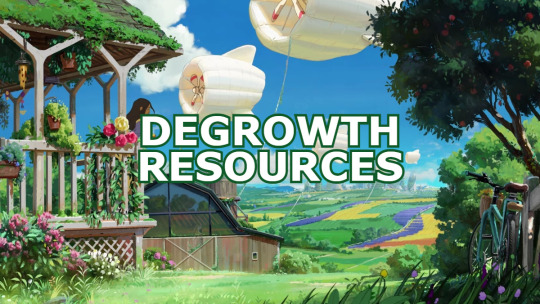
Degrowth basics
"The word degrowth stands for a family of political-economic approaches that, in the face of today’s accelerating planetary ecological crisis, reject unlimited, exponential economic growth as the definition of human progress."
What is Degrowth? | Caracol DSA
Why degrowth is the only responsible way forward | OpenDemocracy
Degrowth and MMT: A thought experiment
We Need A Fair Way To End Infinite Growth | Current Affairs
Degrowth: A Call for Radical Abundance | Common Dreams
Can degrowth save us and the planet? | Nottingham Trent
Defending limits is not Malthusian | Undisciplined Environments
Can We Have Prosperity Without Growth? | New Yorker
The Urgent Case for Shrinking the Economy | The New Republic
Giving Up on Economic Growth Could Make Us Cooler and Happier | The New Republic
A guide to degrowth: The movement prioritizing wellbeing in a bid to avoid climate cataclysm | CNBC
What is ‘degrowth’ and how can it fight climate change? | Popular Science
Enough for Everyone | Yes! Magazine
Toward a Post-Capitalist Future: On the Growth of “Degrowth” | Lit Hub
All we are saying is give degrowth a chance | The RSA
A pathway out of environmental collapse | newsroom
On Technology and Degrowth | Monthly Review
What is degrowth (and more importantly, what is it not)? | META
Green growth
"There is no empirical evidence that absolute decoupling from resource use can be achieved on a global scale against a background of continued economic growth."
Is Green Growth Possible? | Jason Hickel & Giorgos Kallis
The Myth of America’s Green Growth | Foreign Policy
The decoupling delusion: rethinking growth and sustainability | The Conversation
Is green growth happening? | Uneven Earth
Green Growth | Uneven Earth
The Delusion of Infinite Economic Growth | Scientific American
Degrowth is not austerity – it is actually just the opposite | Al Jazeera
A response to Paul Krugman: Growth is not as green as you might think | Timothée Parrique
Deceitful Decoupling: Misconceptions of a Persistent Myth | Alevgul H. Sorman
Degrowth isn’t the same as a recession – it’s an alternative to growing the economy forever | The Conversation
Degrowth and the left
"In the middle of an ecological emergency, should we be producing sport utility vehicles and mansions? Should we be diverting energy to support the obscene consumption and accumulation of the ruling class?"
The Left should embrace degrowth | New Internationalist
Ecosocialism is the Horizon, Degrowth is the Way | The Trouble
Degrowth: Socialism without Growth | Brave New Europe
Toward an Ecosocialist Degrowth: From the Materially Inevitable to the Socially Desirable | Monthly Review
For an Ecosocialist Degrowth | Monthly Review
Degrowth and Revolutionary Organizing | Rosa Luxemburg NYC
The necessity of ecosocialist degrowth | Rupture
Degrowth is Anti-Capitalist | Protean Mag
Degrowth Communism | PPPR (Part one | Part two | Part three)
Economic Planning and Degrowth: How Socialism Survives the 21st Century | New Socialist
Degrowth and the South
"Southern countries should be free to organize their resources and labor around meeting human needs rather than around servicing Northern growth."
Who is afraid of degrowth? A Global South economic perspective | IBON Foundation
The anti-colonial politics of degrowth | Jason Hickel
Unlearning: From Degrowth to Decolonization | Rosa Luxemburg NYC
Degrowth requires the Global South to default on its foreign debts | Resilience
Journals/Reports
Degrowth: a theory of radical abundance | Jason Hickel
A systematic review of the evidence on decoupling of GDP, resource use and GHG emissions, part II: synthesizing the insights
What does degrowth mean? A few points of clarification | Jason Hickel
Providing decent living with minimum energy: A global scenario | Global Environmental Change
Urgent need for post-growth climate mitigation scenarios | Nature Energy
Degrowth and critical agrarian studies | Julien-François Gerber
Decoupling debunked – Evidence and arguments against green growth as a sole strategy for sustainability | European Environmental Bureau
Incrementum ad Absurdum: Global Growth, Inequality and Poverty Eradication in a Carbon-Constrained World | David Woodward
Degrowth can work — here’s how science can help | Nature
A New Political Economy for a Healthy Planet | Jason Hickel
Planning beyond growth. The case for economic democracy within limits
Millionaire spending incompatible with 1.5 °C ambitions | Cleaner Production Letters
Is green growth happening? An empirical analysis of achieved versus Paris-compliant CO2–GDP decoupling in high-income countries | The Lancet
Books
Exploring Degrowth: A Critical Guide | Pluto Press
A People's Green New Deal | Max Ajl
Less is More: How Degrowth Will Save the World | Jason Hickel
Breaking Things at Work: The Luddites Are Right About Why You Hate Your Job | Verso Books
The Future is Degrowth: A Guide to a World Beyond Capitalism | Verso Books
The Imperial Mode of Living: Everyday Life and the Ecological Crisis of Capitalism | Verso Books
Marx in the Anthropocene: Towards the Idea of Degrowth Communism | Kohei Saito
Degrowth & Strategy: how to bring about social-ecological transformation
27 Essays and Thoughts on Degrowth | Giorgos Kallis
Videos
Yes To Limits To Growth! | The Other School
How Degrowth Can Save the World | Andrewism
How We End Consumerism | Our Changing Climate
Demystifying Degrowth | Rosa Luxemburg NYC
Degrowth is not Austerity | John the Duncan
Degrowth and Ecosocialism | Planet: Critical
Degrowth in 7 minutes: Fighting for climate by living better | Think That Through
The Future is Degrowth (w/ Aaron Vansintjan) || SRSLY WRONG
"Degrowth means power to the working class!"with Jason Hickel | GND Media
Others
degrowth.info
Degrowth Journal
Doughnut Economics
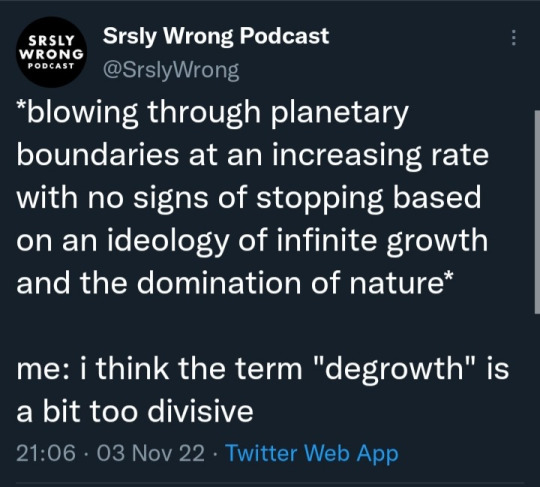
2K notes
·
View notes
Text
Saito has made a career of teasing out an eco-theory from the late, unpublished writings of Karl Marx. He earned his doctorate at Humboldt University, in Berlin, and now teaches philosophy at the University of Tokyo. His first book was an English version of his dissertation, titled “Karl Marx’s Ecosocialism” (2017), which tracked Marx’s study of the physical world and communal agricultural practices. (Saito is fluent in Japanese, German, and English.) In a second academic book, “Marx in the Anthropocene” (2022), Saito drew on an expanded repertoire of Marx’s unpublished notebooks to argue for a theory of “degrowth communism.” He gained a following, not only in philosophical circles but among a Japanese public facing the contradictions of tsunamis, billionaires, and same-day shipping. “Slow Down” has sold more than half a million copies in Japan and launched Saito into a rare academic celebrity. He appears regularly on Japanese television and aspires to the public-intellectual status of Thomas Piketty, the French economist who had a surprise hit in his 2013 doorstop, “Capital in the Twenty-first Century.”
The key insight, or provocation, of “Slow Down” is to give the lie to we-can-have-it-all green capitalism. Saito highlights the Netherlands Fallacy, named for that country’s illusory attainment of both high living standards and low levels of pollution—a reality achieved by displacing externalities. It’s foolish to believe that “the Global North has solved its environmental problems simply through technological advancements and economic growth,” Saito writes. What the North actually did was off-load the “negative by-products of economic development—resource extraction, waste disposal, and the like” onto the Global South.
If we’re serious about surviving our planetary crisis, Saito argues, then we must abandon capitalism, with its insatiable appetites. We must reject the ever-upward logic of gross domestic product, or G.D.P. (a combination of government spending, imports and exports, investments, and personal consumption). We will not be saved by a “green” economy of electric cars or geo-engineered skies. Slowing down—to a carbon footprint on the level of Europe and the U.S. in the nineteen-seventies—would mean less work and less clutter, he writes. Our kids may not make it, otherwise.
1K notes
·
View notes
Text
[on the verge of having a complete breakdown] i need to make some kind of list or perhaps sort things into categories
88K notes
·
View notes
Text
It’s almost as if nobody wants to admit that they might not be prepared to do the work it takes to love somebody. And it can be laborious. To be intimate with someone who is flawed (which is the standard) requires us to expose our own flaws. We don’t talk about the heavy responsibility of that. We don’t talk about how we’re too lazy or too cowardly sometimes. We instead accuse love of being elusive. It isn’t. It is omnipresent. It asks us to be better people. And sometimes we flat out refuse.
152K notes
·
View notes
Text
The heavy surrealism in RGU used to frustrate me as a new viewer, but now, I think it's such an integral piece of Ikuhara's storytelling. Because to me, the absurdities of Ohtori Academy perfectly capture how it feels to live under an abuser.
We as outside observers naturally question why there's a baseball game happening during the Student Council meeting, or how thirty cars can magically spring up in the middle of the dueling arena. And yet, the characters hardly bat an eye. Utena initially struggles to make sense of the duelists, the Rose Bride, and the Castle Said to Hold Eternity, but the more she becomes absorbed in this system, the more normalized it becomes.
We viewers fall for this, too! Show someone almost any Utena scene out of context, and they're going to have questions. Did that guy drive his car through a second-story window? Why is this boy boxing with a kangaroo?? Where the hell did all those swords come from???
"Yeah, don't think too hard about the logic. That's just how things are at Ohtori, you know?"
It's debatable to what extent the characters can perceive the visual symbolism that Ikuhara presents to us. Nevertheless, Ohtori remains a very weird place. But abusers possess the sinister power of normalizing behavior that any outsider would find absurd and unacceptable. They can — quite literally, in Akio's case — project their own version of reality onto their victims.
When Anthy gives Akio her glasses at the end of episode 39, she's rejecting the version of reality that he's convinced her to believe. Through Utena's sacrifice, she can finally see her circumstances for what they truly are.
The exit to Ohtori was always there for Anthy, but like so many real life victims of abuse, sometimes the logistics of leaving aren't what's keeping you trapped. An abuser can make themselves your whole world, and sometimes the greatest challenge can be realizing just how small, confining, and batshit crazy their rules really are.
Abandoning the life an abuser has made for you can feel impossible from the inside. But then you catch a glimpse of something beyond, something that makes you look around and ask, "How did I think any of this was even remotely normal?" And suddenly, leaving starts to feel like the most natural thing in the world.
2K notes
·
View notes
Text

private office
#bioshock#REBLOGGING THIS AS FACT AS I CAN I LOVE IT#art composition and storytelling is immaculate here!!
123 notes
·
View notes
Text
I miss the days when, no matter how slow your internet was, if you paused any video and let it buffer long enough, you could watch it uninterrupted
309K notes
·
View notes
Photo

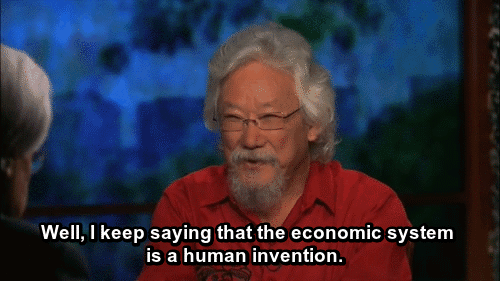

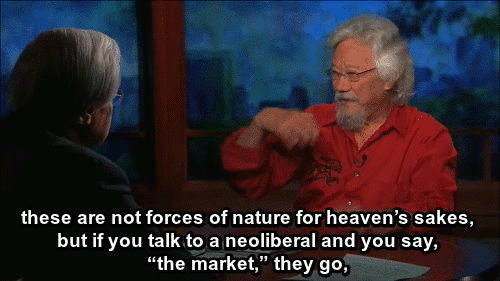



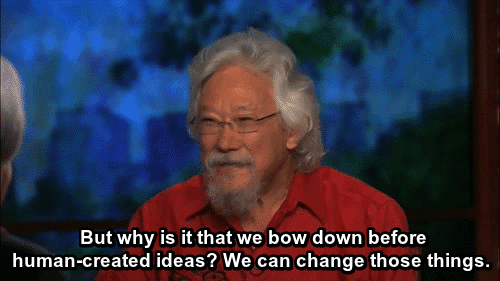
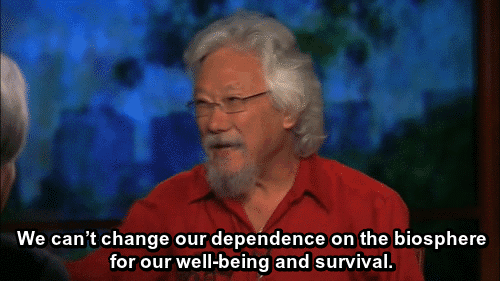

David Suzuki in this interview about facing the reality of climate change and other environmental issues from Moyers & Company.
371K notes
·
View notes










